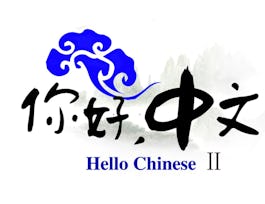In 1994, the HKUST University Council established "The Michael G. Gale Medal for Distinguished Teaching" to commemorate the late Founding Council Member, Mr Michael G. Gale, for his distinguished service and outstanding contributions to the development of the University.



Skills you'll gain
- General Networking
- Course Development
- Multimedia
- Pedagogy
- Educational Materials
- Computer Networking
- Social Sciences
- Education and Training
- Instructing
- Intercultural Competence
- Culture
- Network Engineering
- Learning Theory
- Network Planning And Design
- Network Infrastructure
- Network Model
- Instructional and Curriculum Design
- OSI Models
- Human Learning
- Teaching
Details to know
3 assignments
See how employees at top companies are mastering in-demand skills

There are 6 modules in this course
This module will give you a quick overview of the course and how you will be assessed in this course.
What's included
1 video1 reading1 discussion prompt
The first module is contributed by Prof. Andrew Horner, 2001 recipient of HKUST Michael G. Gale Medal. Prof. Horner is one of the advocators of the Experiential Learning approach at HKUST. Throughout his course, he gave students impossible missions with tips and tricks to challenge their brains and develop their creativity. You will see how his missions were interpreted and transformed by his students into creative work with all the bells and whistles!
What's included
1 video4 readings2 assignments1 peer review1 plugin
The second module is contributed by Prof. King Chow, 2005 recipient of HKUST Michael G. Gale Medal. There has been an old saying that “We are endowed with certain talent and weakness, and everything seems to predetermined as our fate.” With the advancement of biological research, genomics and genetics, there are loads of examples illustrating that our genetic composition dictates who we are to a large extent. But, how large? In this lecture, Prof. Chow will go through some of these examples revealing how much it is truth, and how much it is just a myth with the audience. With a better understanding of the human biology as scientific facts, we hope you would no longer feel haunted by your fate, and would appreciate how much you can change your life by choice and by luck.
What's included
10 videos1 app item
The third module is contributed by Prof. Michelle Yik, 2010 recipient of HKUST Michael G. Gale Medal. If you wish to learn about whether Chinese have romantic love but are not sure where to kick off that journey, this is a romantic module for you.
What's included
9 videos6 readings1 peer review
The fourth module is contributed by Prof. Percy Dias, 2016 recipient of HKUST Michael G. Gale Medal. A computer network is a set of computers connected together for the purpose of sending and receiving information. The Internet itself can be considered a computer network. The connection between computers can be done via cabling, most commonly the Ethernet cable, or wirelessly through radio waves. Connected computers can share resources, like access to the Internet, printers, file servers, and others. A network is a multipurpose connection, which allows a single computer to do more. In this lecture, Prof. Dias will demonstrate to us how these hard-to-visualize concepts can be delivered to students in an easy-to-learn way with fun.
What's included
9 videos1 assignment
This final module aims to tie what you have learnt to the course learning objectives through a final assignment.
What's included
1 reading1 peer review
Instructors



Why people choose Coursera for their career




Recommended if you're interested in Social Sciences

Shanghai Jiao Tong University

Arizona State University

Rice University

Open new doors with Coursera Plus
Unlimited access to 10,000+ world-class courses, hands-on projects, and job-ready certificate programs - all included in your subscription
Advance your career with an online degree
Earn a degree from world-class universities - 100% online
Join over 3,400 global companies that choose Coursera for Business
Upskill your employees to excel in the digital economy




